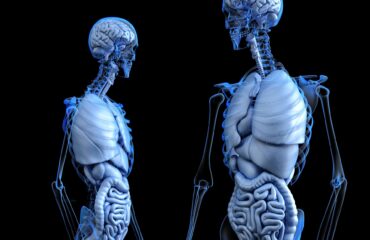Pg. 16 Question: Why Has It Taken Us So Long to study the differences between Men and Women?
One of the very first questions I get when I’m learning about the implications of the sex differences between men and women is, “Why are we only just learning about this now?”
Because, for much of the time that we’ve been doing real medical research, we haven’t studied women, we’ve studied only men. But why?
It’s a good question, and one that deserves a real answer. At all levels of scientific investigation, researchers believed that males were easier and better study subjects than women.
They weren’t wrong. Studying women is more complicated than studying men, and, is medical research, a ‘complicated’ translates to ‘expense’.
Men aren’t subject to the same hormonal fluctuations over the course if the month that women are.
Those fluctuation, which affect, many of the body’s systems, introduce variables that need to be taken in to account when tabulating results.
For instance, body temperature, a baseline measurement rises in women at ovulation.
Normal variations like these which, don’t appear in men, can impact results.
It’s also hard to do any kind of medical testing on women of childbearing age.
Certain medications and techniques simply aren’t appropriate because they may compromise fetal development particularly in the very early stages (before a woman even knows she’s pregnant) or interfere with a women’s ability to conceive at all.
And a pregnancy can throw a monkey wrench into collecting data for a long study. Too many changes take place over the course of a pregnancy for that person to remain a stable medical subject, even if what we’re testing is safe.
It’s still difficult to do that work we need to do to know what the differences are between women and men. It’s difficult because women are more complicated test subjects and because it’s difficult to get funding for research into this fascinating area.
It’s my hope that continued inquiry driven by men and women will illuminate some of these differences and that this new awareness will provide us with the strategies to move forward.
Pg. 39 More Alike Than Different
As the song says ‘Love will Keep Us Together’. And that’s precisely what Donatella Marazziti, a professor of psychiatry at the University of Pisa in Italy, found when she looked at temperature levels of a small group of men and women in love. When we’re searching for a partner, our sexual appetites are restricted only by attraction; the field is wide open. But when you fall in love, your sexual focus becomes tunnel vision; you have eyes for one person only, and it seems positively inconceivable that you’ll ever allow anyone else to touch you again. A male friend of mine, known for his playboy ways, tells me that he knows it’s ‘the real thing’ only when other attractive women fail to distract him. And when it comes to that one person, you may find yourself astonished (even if you ordinarily have a healthy sexual appetite) by the intensity of the passion you feel and how much you want to express that passion sexually. Love can make you feel like you’re 18 again, in more ways than one.
Dr. Marazziti may be able to explain why our lust is so powerful and so single-mindedly focused on the object of our affection in the early stages oof love. Testosterone is the primary hormone that drives sexual appetite in both sexes and both show an elevation in testosterone levels during periods when they’re sexually active. But in Dr. Marazziti’s study, the men had lower than normal levels of testosterone, while the women’s levels were higher than normal. In other words, (hormonally speaking anyway) men and women met in the middle.
Specialist in internal medicine and primary care.





